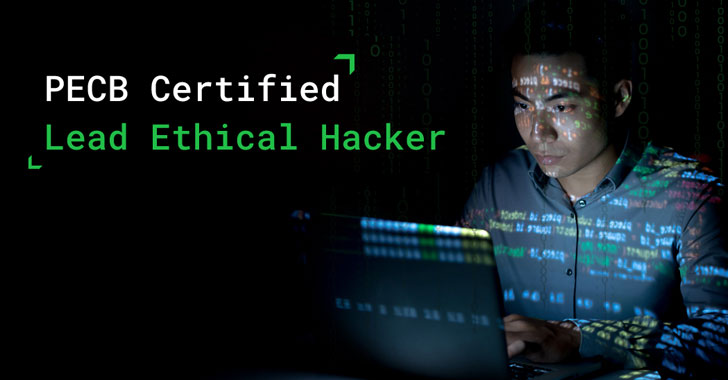Cybercrime is increasing exponentially and presents devastating risks for most organizations. According to Cybercrime Magazine, global cybercrime damage is predicted to hit $10.5 trillion annually as of 2025.
One of the more recent and increasingly popular forms of tackling such issues by identifying is ethical hacking. This method identifies potential security vulnerabilities in its early stages. Certified ethical hackers use advanced tools and strategies to prevent cyberattacks and help organizations strengthen their cybersecurity.
Why Companies Should Hire Ethical Hackers
As cyberattacks constantly evolve and improve, organizations must ensure that their defense systems and approach can keep up with the level and complexity of cyberattacks.
In today’s business era, organizations cannot afford to operate without identifying the vulnerabilities in their system and taking preventive measures. As such, ethical hackers provide several advantages: they offer a unique outsider’s perspective to a system’s vulnerabilities, are able to detect threats before they happen, and can provide tailored solutions to specific issues instead of blanket alternatives. The market demand for ethical hackers is increasingly growing.
PECB offers the Certified Lead Ethical Hacker training course, which validates your ability to lawfully assess the security of a system, as well as identify and mitigate potential threats.
The training course combines theory (fundamentals of ethical hacking, network systems, cryptography, Kali Linux, and the steps of conducting penetration tests in accordance with the most known standards and best practices) with practice (lab sessions using PECB’s innovative applications built specifically for this course). You will greatly benefit from the lectures, exercises, labs, discussions, and much more.
The PECB Certified Lead Ethical Hacker exam comprises two parts: the practical exam and the report writing. It aims to evaluate candidates’ comprehension, analytical skills, knowledge, and ability to conduct information systems penetration tests. In the practical exam, the candidate is required to compromise at least two out of three target machines through penetration testing. The process should be documented through a written report. The PECB Certified Lead Ethical Hacker exam is an open book exam and lasts 6 hours.
Why Become an Ethical Hacker
Data is one of the most important assets of any organization, especially those who deal with sensitive data on a daily basis. Seeing how the role of ethical hackers gains more importance and the demand for ethical hackers increases, this is the best time to enter an industry with a high potential. It is predicted that the global penetration testing market will reach US$4.1 billion by 2027, offering a bright future for ethical hackers.
Certification is a necessity for individuals who want to pursue a career in ethical hacking. A professional certification related to IT will always improve your career resume. Some of the high-paying job positions in the ethical hacking industry are: Cybersecurity Architect, Cybersecurity Engineer, Penetration Tester, Ethical Hacker and Information Security Analyst.
A PECB ethical hacking certification will help you to:
- Think like a hacker
- Enhance your knowledge on information security risks
- Advance your information security career
- Master the main concepts, methodologies, and best practices used by cybersecurity professionals and ethical hackers
- Perform network traffic analysis
- Investigate how cybercriminals bypass firewalls and intrusion detection systems
- Train the security team in an organization regarding the latest methods used by cybercriminals
Why Choose PECB
The PECB Certified Lead Ethical Hacker training course enables you to develop the competence and knowledge required to conduct ethical hacking, mainly for information systems and network penetration tests. The training course also includes labs that are completed with a virtual machine. Hence, you will be endowed with the necessary theoretical and practical skills.
Read the experience of some PECB CLEH training course candidates:
1 — Carl Carpenter — Consultant at “Arrakis Consulting”
Fantastic course! If you want to get your CLEH certification, this is the course to take. The instructors are knowledgeable and patient. They walk you through the exercises repeatedly to ensure adequate knowledge transfer and plenty of practice. Highly recommend this course!
2 — Bachir Benyamm — Managing Director at “OASISEC”
I was fortunate to enroll in the new PECB ethical hacking training course. It helped me to revise some penetration testing techniques, as well as to learn many others. The CLEH course will dive cyber enthusiasts into the world of ethical hacking. It is also an opportunity for businesses to recognize their threats and weaknesses, thus better secure their assets. Congratulations to PECB for this significant addition to their training catalog!
3 — Savadogo Yassia — Head of Cybersecurity Department at “ARCEP”
With cyber threats becoming more and more present and sophisticated, penetration testing is a must to prevent attacks. PECB, through the CLEH training course, offers an opportunity to all those who want to be part of the battalions of testers in order to prevent attacks on companies. The CLEH offers content that combines both operational and management, which allows having competent intrusion testers to guarantee the security of companies. I learned a lot from the PECB CLEH course.
For more information regarding the PECB Certified Lead Ethical Hacker training course and exam, visit PECB Certified Lead Ethical Hacker | PECB or contact us at marketing@pecb.com.
